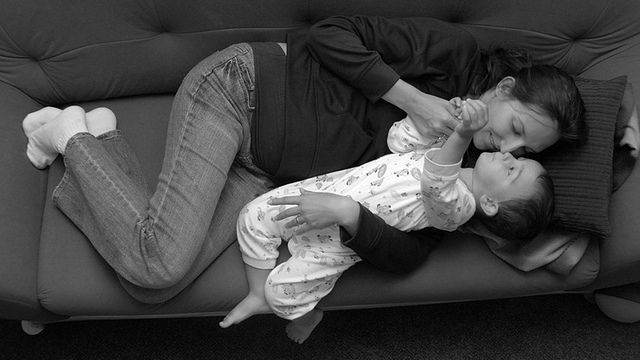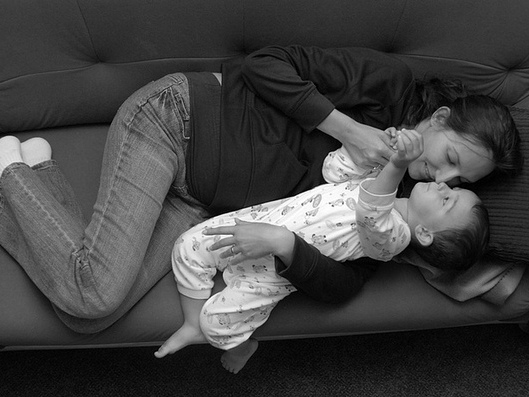
A new report indicates childless women earn more than mothers, yet fathers earn more, on average, than men without children.
The government report tracked men and women with and without children under 18 years old. The discovery highlighted a trend in U.S. society that some expert claim is putting mothers on the losing end of the spectrum.
“I think parenthood is like the new site of gender discrimination,” Michelle Budig, a sociology professor at the University of Massachusetts at Amherst, told NBC News.
The U.S. Bureau of Labor Statistics report detailed the median weekly earnings for both men and women in 2012. During that year, 36 percent of women and 37 percent of men in the full-time salary workforce were parents of minors.
The report found that women who were parents of minors earned a median weekly earning of $680, whereas women without children earned $697. Males with children under 18 earned $946, compared to those without children, who earned just $799.
The reason for the discrepancy, particularly between male and female mothers, isn’t highlighted in the report. Francine Blau, a Cornell University economics professor, told NBC News that it could relate to the belief in society that moms prefer to taper off their time in the workplace once children are brought into the mix.
“If employers believe on average that women with children would be less good workers, then they might discriminate against all women with children,” she told NBC.
Budig authored a report titled, “The Wage Penalty for Motherhood” in 2000, in which she addressed the growing wage gap between mothers and fathers in the workplace. The report also showed that women with more children earn less with each child, with a penalty of 5 percent per child.
“The portion of the motherhood penalty we cannot explain probably results from effects of motherhood on productivity and/or from employers’ discrimination against mothers,” her report reads. “While the benefits of mothering diffuse widely, to the employers, neighbors, friends, spouses, and children of the adult who previously received the mothering, the costs are borne disproportionately by mothers.”


